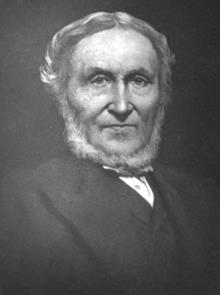Oxford was finally linked to the rail network in June 1844. Within a decade or so the railway had become part of the way in which Oxford University Press at all levels conducted its business and its pleasure. One such pleasure was a wayzgoose. Originally a wayzgoose or waygoose denoted an annual feast given by a master printer for his workers, which was usually held on or around St Bartholomew’s day (24 August). This was traditionally regarded as the end of summer, a time after which printers might be expected to work by candle light in the evenings. Later it came to mean any holiday or event funded by employers for their printers and apprentices. On 15 July 1854 there was a wayzgoose outing to Portsmouth courtesy of the G.W. and L.N. Railways, an event which was still unusual enough for the recorder of the day to observe with some relief that they all ‘returned without any accident’. In July 1856 the men from the Bible side took advantage of three-day return tickets (Saturday morning to Monday evening) to London at 4s each that had been negotiated with the GWR; the majority visited the Crystal Palace, by then newly re-sited and expanded at Sydenham in South London. In August 1857 the men exchanged their Saturday half-holiday for a half-day trip to Nuneham Courtenay for the G.W.R. Fete.
Further up the hierarchy the Press was, by the 1860s, equally dependent on the new railways and other developing communication systems. Bartholomew Price, who was acting more and more as a sort of CEO for OUP, needed almost weekly advice from his newly-appointed publisher in London, Alexander Macmillan. This advice was of a complicated sort that could not be delivered exclusively by letter, though letters were frequently exchanged. Indeed, the frequency with which letters were collected and the speed with which they were delivered was itself a monument to the Penny Post. However, what additionally was required was Macmillan’s frequent attendance at Oxford, and Price’s frequent presence in London. Both men were busy: Macmillan with many other ventures; Price with teaching, college affairs, and other Press business. Neither could necessarily spend a day or more on a meeting and the associated travel, as had been expected of the London-based Bible Partners earlier in the century. Price’s and Macmillan’s letters to each other were full of details about which train to take, and how long they might spend in a meeting before catching the last express service home.
The dependence of Price and the Delegates on Macmillan in the first year or two of their relationship is clear, and the need to arrange precise meeting times pressing:
We have a long list of subjects waiting for consultation with you. Our usual hour of meeting on Tuesday is 2.15. Shall you be here at that time?
The Delegates of the Press will hold the last meeting for the term on Friday next at two o clock. The amount of business is considerable: and cannot be done without you. We shall also be glad of your assistance in fixing the price of several books which we hope then to order for publication & printing […] It will consequently be convenient if you will to Oxford either on Thursday evening or by the first train on Friday so that we may devote that morning to Press work.
In 1863 Macmillan could have caught a noon train which would have got him into Oxford by 1.32 pm, but Price was asking a lot when requiring that the publisher catch the first train on Friday, as that left Paddington at 6.00 in the morning, arriving in Oxford at 8.20 am. Assuming that he travelled first class, it would have cost him 11s.
The speed and frequency of trains allowed Price and Macmillan to run a close, cooperative venture. This would not have been possible much before the 1850s. Macmillan’s own experience had made this clear. Twenty year before, Alexander Macmillan had taken an outside seat on a horse-drawn coach from London to Cambridge to provide support for his ailing brother Daniel. So long and so cold was the journey that Alexander arrived almost as ill as his brother and thus of very little use to him.
The frequency and dependability of the letter post is another thread in the communications web on which the OUP-Macmillan relationship rested, and of which they had the highest expectations. In August 1880, when Price was on holiday in North Wales, he wrote complaining that:
Your letter, forwarded from Oxford, reached me here yesterday, but I was unable to take any action on it then as the Post leaves the place at midday on Sundays.
Demands to be informed ‘by return of post’ or by ‘tomorrow night’s post’ were common, and were often associated with telegrams that followed up letters or which letters superseded. This created a speedy feedback loop for both protagonists, which allowed them quickly to adjust their advice and behaviour in the light of the other’s rapid response. Crises, and there were many in this period, prompted a spate of letters and telegrams – with a frequency and immediacy that was closer to email than one might have expected – as Price struggled to interpret the Delegates to Macmillan, and Macmillan strove to explain the commercial imperatives of a London textbook publisher to Oxford dons.
Simon Eliot is Professor of History of the Book at the Institute of English Studies. He is the general editor of The History of the Oxford University Press.


